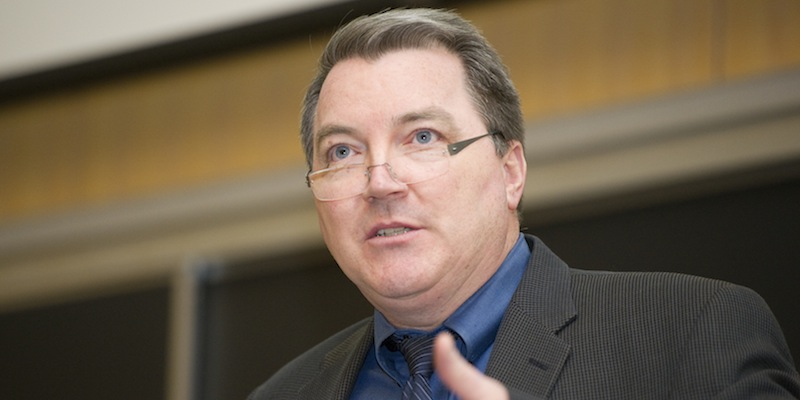3Qs: Looking ahead as U.S. troops prepare to leave Iraq behind

On Friday, President Obama announced the United States would withdraw all of its troops from Iraq by the end of the year, ending the war in Iraq that lasted nearly nine years. We asked political science professor Denis Sullivan, director of Northeastern’s Middle East Center for Peace, Culture and Development, to offer insight on what factors may have influenced this turn of events and the potential global impact of this final withdrawal.
The war in Iraq has been ongoing for the last nine years. What circumstances — global or domestic — may have influenced Obama’s decision to finally withdraw U.S. forces?
I see at least three factors guiding President Obama’s decision to withdraw forces. First, there are his personal views. In 2002 and 2003, Obama was against the war in Iraq, even as President Bush was trying to make the case for it. As Obama campaigned for president in 2007 and 2008, he “pledged to bring the war in Iraq to a responsible end.” Now he is fulfilling that pledge.
Second, the Status of Forces Agreement (SOFA) — which Bush negotiated in 2008 prior to leaving office — called for this very thing: the withdrawal of all U.S. forces from Iraq by December 31, 2011. However, this agreement was being renegotiated between Iraq and the United States, and there was a chance that its terms could be changed, keeping some troops in Iraq past January 2012. With Friday’s announcement, we now know that the SOFA agreement stands.
A third factor in Obama’s decision is the continuing costs of the war. Not only has America sustained more than 4,400 soldiers killed in Iraq and another 32,200 seriously wounded, but also, as of today, American taxpayers have been saddled with a nearly one trillion dollar price tag for the Iraq war, with an additional $2 trillion of future commitments, debt payments and opportunity costs. This $3 trillion war might soon be over from an operational point of view, but there is much more to be done beyond this critical withdrawal.
What will be the global response to the final withdrawal of U.S. troops from Iraq?
The United States’ allies will support our country and the Iraqi government; our adversaries will say we were forced out. Those who are neither enemy nor friend will likely focus on the positive development for the people of Iraq, who have lost more than 115,000 citizens, in addition to thousands of soldiers since our invasion and occupation in 2003. Many people around the world will probably give high marks to Obama for ending the direct role of the U.S. military in Iraqi affairs. Hopefully, world attention, and especially American attention, will now shift back to Afghanistan, with the goal of the United States withdrawing from that shattered country as well.
What impact will this withdrawal have on U.S. relations with Iraq and the Middle East?
A complete troop withdrawal from Iraq by December will make an enormous and positive impact on our relations both with Iraq and other nations in the Arab world, and potentially even Iran. With no U.S. troops in Iraq, there will be no physical targets (American men and women in uniform; bases; joint U.S.-Iraqi security operations) for extremist or militant elements that want to use anti-Americanism for their own agendas. It also makes the political statement that America is no longer an occupying power. Moreover, with no U.S. military personnel of any kind in Iraq, it sends the signal that we have reversed a devastating decision and are seeking a new relationship with both Iraq and the region as a whole. This is a most timely development as the United States and the world continue to watch developments of the “Arab Spring” or “Arab revolutions.” Perhaps now we can stop the direct meddling in Arab citizen movements, support them from the sidelines and work with them as partners as they reform their own political systems and seek to grow their economies. America is better positioned now, with President Obama’s announcement, to be that economic partner and political ally.





